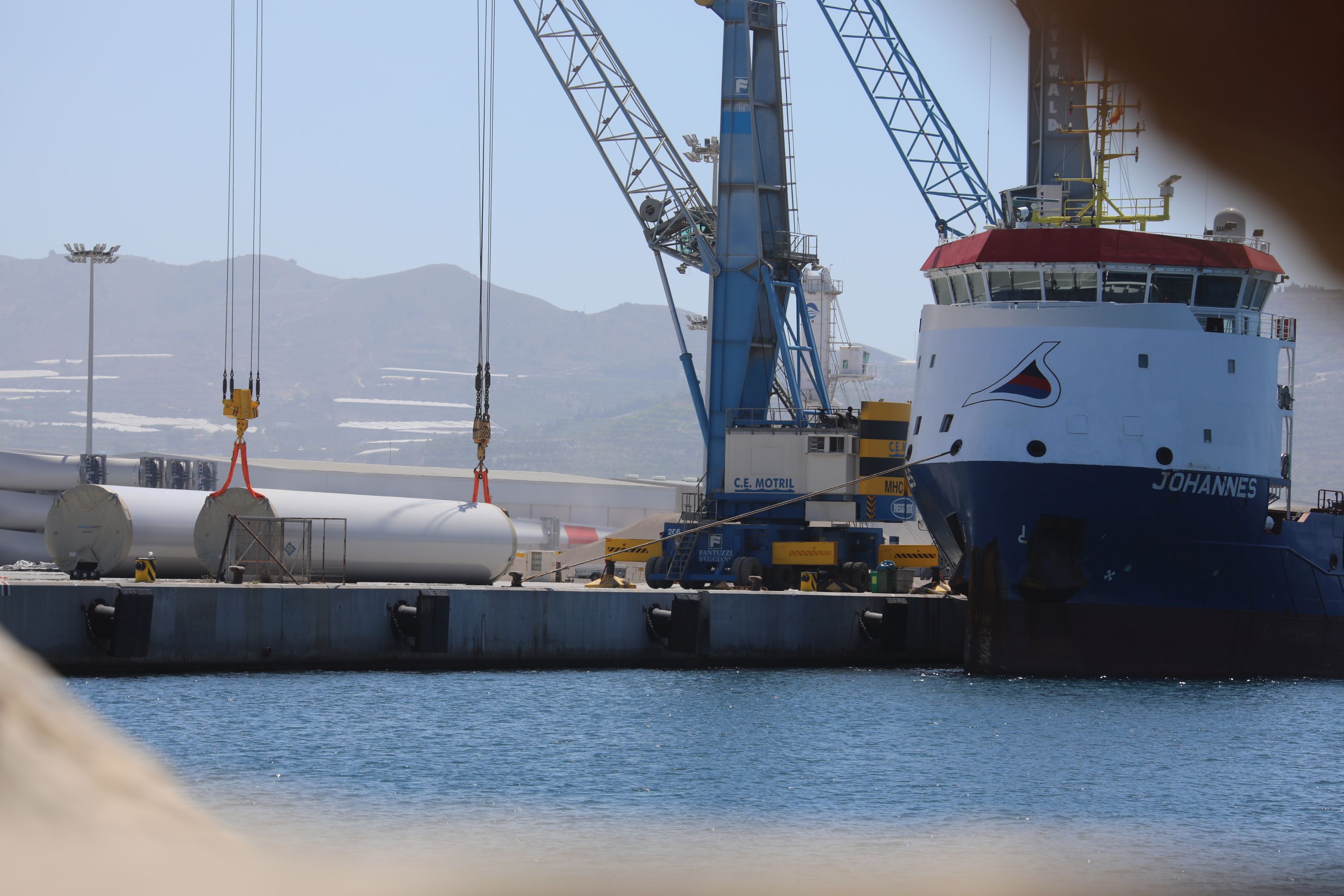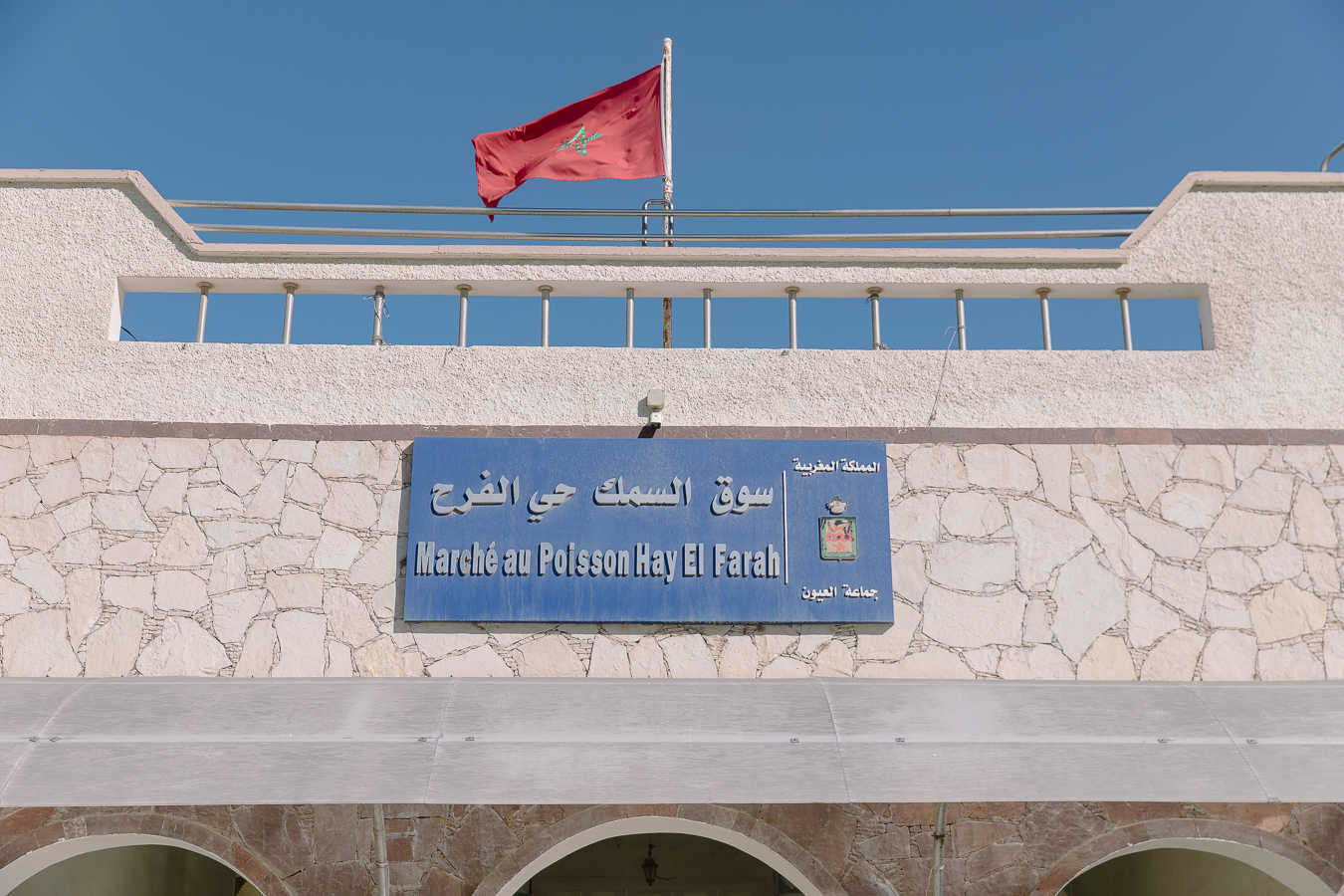
More and more investors are kicking Nutrien from their portfolios for its imports of phosphate from occupied Western Sahara. But the company shows no indication of its stated intent to phase-out the controversial imports from by the end of this year.
At this very moment, 160.000 tonnes of phosphate rock from occupied Western Sahara is heading towards the Canadian company Nutrien's plants in North America, onboard three large bulk carrier vessels. The massive trade happens while a number of investors have kicked the company out of its portfolios for violating their ethical guidelines for investments.
Early this year, Nutrien arose as a merger of two of Canada’s giant importers of Saharawi phosphates; Agrium Inc and PotashCorp Inc. The two legacy company have since 2013 taken in practically half the amount of all phosphate rock exported by Morocco from the part of Western Sahara that it holds under occupation. The two companies have both been subjected to exclusions from investors internationally over the last years, precisely because of these imports.
Western Sahara Resource Watch (WSRW) wrote in January, at the time of the merger, that it expected that all those who had blacklisted one or both of the two legacy companies, would automatically apply that decision to the merged company. That is what is happening right now.
The world's biggest sovereign wealth fund, the Norwegian Government Pension Fund, has without issuing a press release replaced the name of "Potash Corp" with "Nutrien" on its list of exclusions. The fund normally issues press releases when kicking a company out of its portfolios, but has recently discretely excluded Nutrien. With the replacement, the Norwegian goverment dumped a 190 million USD worth of Agrium shares.
The Norwegian Government Pension Fund is not the only investor that has automatically blacklisted Nutrien, by simply replacing either one or both of the legacy firms with the new company;
- Norway's leading bank DNB replaced both Agrium and PotashCorp with Nutrien on its exclusion list.
- Swedish company Nordea replaced PotashCorp with Nutrien on its blacklist.
- Wespath, the pension fund of the US Methodist Church has also replaced both legacy firms with Nutrien.
- Swedish pension funds AP1, AP2, AP3, AP4 and AP
- Danish bank Nykredit also excluded Nutrien for "breaches of human rights in occupied territories".
- Swedish investor KPA.
-Norwegian insurance company Storebrand.
-Norwegian investor KLP.
Nutrien is also enlisted as a "contacted" compay due to its involvement on "occupied lands" by Swedish investor Swedbank Robur.
Massive imports continue unabated
In January 2018, Nutrien’s CEO Chuck Magro stated that “the Agrium legacy organization already gave notice to stop the contract at the end of this year”. A decision on how to proceed with the imports to the PotashCorp legacy would be taken “by the middle of the year”, though “it is fair to say the long-term goal is not to have a Western Sahara issue as part of the new company going forward”.
That intention does not correspond particularly well with the fact that Nutrien is taking in three major deliveries of phosphate rock from occupied Western Sahara over the course of the next three weeks.
Two bulk carriers, with a combined cargo of well over 100,000 tonnes in their holds, are on their way to Vancouver, where Agrium – and thus presently Nutrien – takes in its consignments. The Panama-flagged Ultra Agility is expected to arrive on 5 June, with an estimated cargo of 59,000 tonnes of contentious rock. The vessel is operated by Danish company Ultrabulk, the most heavily involved operator in transporting phosphate from Western Sahara to takers around the world. The Desert Osprey, registered on the Marshall Islands, is arriving 10 days later with another consignment of around 54,000 tonnes. The vessel is managed by Atlantic Bulk Carriers Management Ltd but owned by Lazio Shipping and Investment Ltd.
In addition, the Mackenzie is bound to unload 60,000 tonnes of the conflict mineral at the port of Baton Rouge, USA, in three days' time - the harbour where Nurien's PotashCorp legacy is located.
Adding these three shipments to Nutrien's import slate of this year, results in a total of five shipments - three to Vancouver, and two to Baton Rouge - to the tune of approximately 294,000 tonnes.
Western Sahara Resource Watch (WSRW) has today sent another letter to Nutrien Ltd, as our previous letter of 21 February 2018 has not been responded to. That letter contained questions with regard to the company’s announcement that it would end imports of Western Sahara phosphate. "The company is on a similar import-track to last year’s, and nothing indicates that it has an intention to end, or even reduce, its imports from Western Sahara", WSRW wrote in its latest letter to the company.
Agrium and PotashCorp were respectively the two biggest importers of Saharawi phosphate rock of 2017, as detailed in WSRW's annual overview report on the Western Sahara phosphate trade. Read the 2017 edition of P for Plunder here.
Until the merger of the two legacy companies, more investors had excluded PotashCorp, rather than Agrium. PotashCorp appeared more frequently on such lists, due to its long involvement. The inclusion of Nutrien on these investors’ blacklists, thus mean that those which had previously blacklisted only PotashCorp, now also had to sell the shares they held in Agrium. The investment of the Norwegian government sovereign fund was for instance 190,6 million USD in Agrium at 31 December 2017, only a week before Agrium’s merger with PotashCorp. Those shares – consisting of around 1 percent of the company’s stocks - have now been now sold. The Norwegian government used to be one of Agrium's biggest shareholders prior to the merger.
New report: Certified occupation
International certification standards embellish Morocco’s controversial trade with fisheries and agricultural products in occupied Western Sahara, new report documents.
Certification giant SGS points fingers elsewhere
SGS blames everyone else for mistakes on MarinTrust certificates it had issued to Moroccan companies in occupied Western Sahara.
New report: Greenwashing Occupation
Out now: WSRW today publishes a new report outlining the massive - and deeply problematic - renewable energy projects that Morocco is developing in occupied Western Sahara.
GMP+ does not check if “sustainable” fish is legally caught
The world’s largest certification scheme for “safe and sustainable animal feed” does not check whether its certified fish feed companies source from illegal fisheries in occupied Western Sahara, where catches violate the Saharawi people’s right to self-determination.



